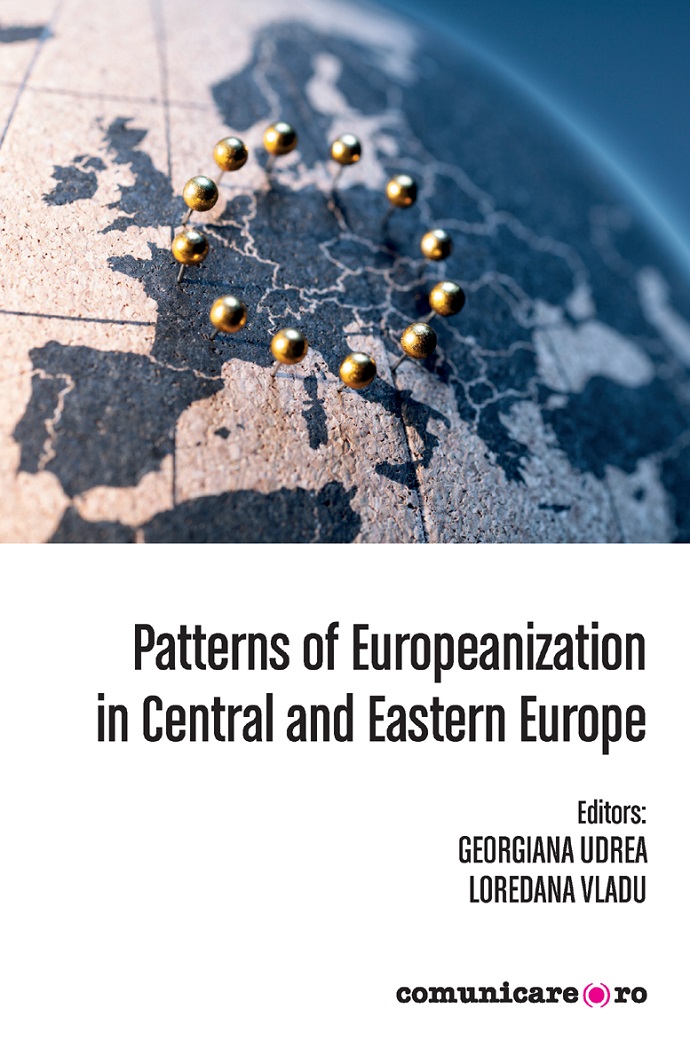Patterns of Europeanization in Central and Eastern Europe, by Georgiana Udrea, Loredana Vladu, editors

ISBN: 978-973-711-620-8, Nr. pagini: 170, Format: 15,5 x 23,5 cm
Limbă: Engleză, Domeniu: Sfera publică europeană
Published with the support of the Erasmus+ Programme of the European Union.
This book is a key deliverable of the Jean Monnet Module “Patterns of Europeanization in Central and Eastern Europe” (project number 575332-EPP-1-2016-1-RO-EPPJMO-MODULE).
The European Commission's support for the production of this publication does not constitute an endorsement of the contents, which reflect the views only of the authors, and the Commission cannot be held responsible for any use which may be made of the information contained therein.
Despre carte:
Prezentul volum colectiv, parte a unui proiect mai larg susținut de Programul Erasmus+ al Uniunii Europene, se concentrează pe mecanismele procesului de europenizare în Europa Centrală și de Est și pe contextele particulare și specificitățile demersului integrării europene în această regiune.
This book focuses on a debated, yet insufficiently explored field of European studies, namely the mechanisms of Europeanization in Central and Eastern Europe. Why should we assume that Europeanization takes different shapes in CEE countries? What qualifies these countries as “special” recipients of European integration? There is a growing consensus that the “younger”, the “new” member states, such as Romania, underwent a European integration process that is inherently influenced by both their recent past and current geopolitical position on the “unquiet frontier” of the Western world. This is not an easy stance and recent events have made no exception in highlighting this uneasiness.
The conclusions stemming from this book are anchored into a diversity of topics, theoretical models, and empirical findings that enable us to better understand how Europeanization works in different settings, how various variables should interact in order to foster the commitment of European citizens to the “European we-feeling”.
Mai multe detalii, pe pagina Editurii comunicare.ro.